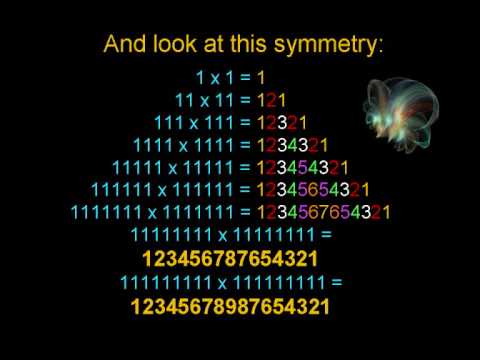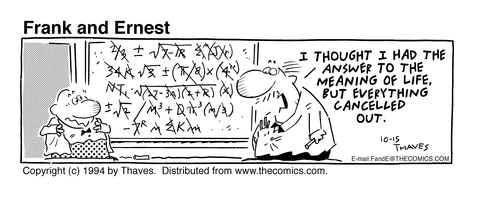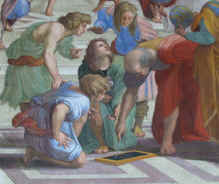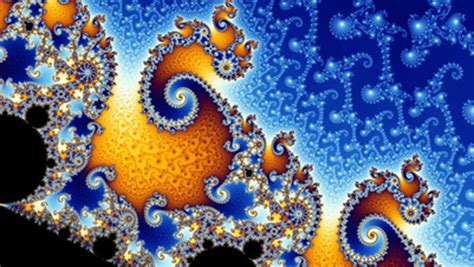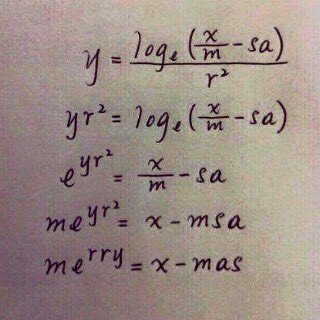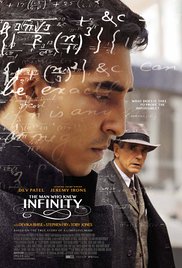|
home | what's new | other sites | contact | about |
||
|
Word Gems exploring self-realization, sacred personhood, and full humanity
Mathematics
"Can you do addition?" the White Queen asked. "What's one and one and one and one and one and one and one and one and one and one?" "I don't know," said Alice, "I lost count." Lewis Carroll, Through the Looking Glass
Editor’s collection of notes: Math Monkeys Typing Shakespeare: Understanding Uncertainty Furman University math quotes collection Flatland: the Classic Speculation on Life in 4 Dimensions Karl Friedrich Gauss: helping children with math Dominic Walliman: The Map of Mathematics The Univ of Michigan: the best explanatory illustration I've found of trig’s unit-circle
Euclid, detail from "The School of Athens" by Raphael
Jeff Fox, Ph.D., U. of Colorado: "Mathematics is 98% Linear Algebra.” Pierre de Fermat: Fermat is best remembered for his work in number theory, in particular for "Fermat's Last Theorem." This theorem states that xn + yn = zn has no non-zero integer solutions for x, y and z when n > 2. Fermat wrote, in the margin of Bachet's translation of Diophantus's Arithmetica, "I have discovered a truly remarkable proof which this margin is too small to contain." These marginal notes only became known after Fermat's son, Samuel, published an edition of Bachet's translation of Diophantus's Arithmetica with his father's notes in 1670. Graffiti in a subway station: “I've just developed a proof that demonstrates that, where n>2, the equation an+bn =cn cannot be solved with integers. Unfortunately, my train is coming.”
Albert Einstein: "As far as the laws of mathematics refer to reality, they are not certain; and as far as they are certain, they do not refer to reality." Robert Heinlein: "The three-legged stool of understanding is held up by history, languages, and mathematics. Equipped with these three you can learn anything you want to learn. But if you lack any one of them you are just another ignorant peasant with dung on your boots." Ernst Mayr: "Mathematics is as little a science as grammar is a language." Alfred North Whitehead, On Mathematical Method: "The first acquaintance which most people have with mathematics is through arithmetic... the first noticeable trait about arithmetic is that it applies to everything, to tastes and to sounds, to apples and to angels, to the ideas of the mind and to the bones of the body. The nature of the things is perfectly indifferent, of all things it is true that two and two make four. Thus we write down as the leading characteristic of mathematics that it deals with properties and ideas which are applicable to things just because they are things, and apart from any particular feelings, or emotions, or sensations, in any way connected with them. This is what is meant by calling mathematics an abstract science." John D. Barrow, The Book of Nothing: Vacuums, Voids, and the Latest Ideas about the Origins of the Universe: “There is, as we shall see, a real and precise difference between the number zero and the concept of a set that possesses no members - the null, or empty set. Indeed, the second idea, pointless as it sounds, turns out to be by far the most fruitful of the two. From it, all of the rest of mathematics can be created step by step.” John D. Barrow, Theories of Everything: The Quest for Ultimate Explanation: “Besides the traditional questions of where or what the Platonic world of perfect mathematical blueprints actually is, this view moves us towards a number of deep and fascinating questions. It elevates mathematics pretty close to the status of God in traditional theology. Just take any work of medieval theology and alter the word 'God' to 'mathematics' wherever it appears and it makes pretty good sense. Mathematics is part of the world, and yet transcends it. It must exist before and after the Universe.” John D. Barrow, Theories of Everything: The Quest for Ultimate Explanation: “Science is predicated upon the belief that the Universe is algorithmically compressible and the modern search for a Theory of Everything is the ultimate expression of that belief, a belief that there is an abbreviated representation of the logic behind the Universe's properties that can be written down in finite form by human beings.” John D. Barrow, Theories of Everything: The Quest for Ultimate Explanation: “Impressed by the success of high-level mathematics in the formulation of the general theory of relativity in 1915, we find that Einstein's life-long quest for a unified field theory was dominated by the search for more general mathematical formalisms that could bring together the existing descriptions of gravity and electromagnetism. We find none of Einstein's compelling thought experiments and beautifully simple physical reasoning that lay at the heart of his early success… he had become convinced that by pursuing mathematical formalisms alone, the compelling simplicity of a unified description of the world would become inescapable.” Robert M. Hutchins on Alfred North Whitehead: "[Whitehead's] On the Nature of a Calculus examines the way in which tools for abstracting are forged. Such a tool is called a calculus. It is the art of manipulating signs according to certain fixed rules. Arithmetic is a calculus; so are algebra and trigonometry. The branch of mathematics invented by Newton and Leibniz was considered so important that it was called the calculus... The most significant thing about these tools is that after they have been invented they seem to lead a life of their own. A mathematician often feels that he is in the position of simply watching them to see what they will do. If we can imagine one set of tools making another set of tools, we have a picture of the growth of mathematics. 'Device is piled upon device,' says Whitehead. But he rejects the idea that mathematics can become completely divorced from the world of things. A calculus may consist of symbols that stand for other symbols, but, if it is not to be frivolous, it must ultimately refer to some reality. The rarefied atmosphere of Abstract Thought is not an outer space reserved for professional mathematicians. If you have learned to add two and five without asking "Two and five what?" you already have both feet off the ground-higher than you think. You are now air-borne. The rest is just a matter of gaining altitude." Andrew Russell Forsyth, Mathematics, in Life and Thought: "... fuller knowledge through patient labour... for the acquisition of mathematical knowledge: for he will find, as Euclid told a bored and discontented pupil in words that have lived for more than two thousand years, There is no royal road to learning." Andrew Russell Forsyth, Mathematics, in Life and Thought: "What the modern peoples have thus inherited ... an unending life-giving rivalry in the creation of mathematical knowledge, sought for its own sake, its domain as boundless as human thought itself. For there is progress still in mathematical science; there will always be progress of increasing knowledge in a world that is not dead. Results have been achieved by the noble army of great spirits of the past, and their achievements are the possession of the living. But those very achievements are the stimulus to the living that they, in their turn, shall endeavour to advance knowledge. And this pursuit is to be made by the living spirits for the sake of new knowledge, not for the sake of new glory, not for the sake of new benefit. If utility should come, well and good: but we need trouble no more about immediate utility as an aim than the Greeks troubled about the utility of their conic sections or Newton troubled about the utility of the gravitation theory. So here, amid this community in a centre of commercial activity, in this home of high learning which has been established for the betterment of men and women as human citizens, let me plead, if pleading be needed, for the highest consideration to be given to the pursuit of pure knowledge as well as technical training, not neglecting mathematics, once called the Queen of the Sciences. The wind bloweth where it listeth and the spirit of knowledge does not follow the quest for wealth and power; but the creation of new knowledge makes for the high repute of a nation, alike in the days when its influence is dominant and in the more distant days when its doings shall have been recorded on the scroll of time." Lancelot Hogben, Mathematics, the Mirror of Civilisation: "Diderot was staying at the Russian court, where his elegant flippancy was entertaining the nobility. Fearing that the faith of her retainers was at stake, the Tsaritsa commissioned Euler, the most distinguished mathematician of the time, to debate with Diderot in public. Diderot was informed that a mathematician had established a proof of the existence of God. He was summoned to court without being told the name of his opponent. Before the assembled court, Euler accosted him with the following pronouncement, which was uttered with due gravity: a + bn/n = x, donc Dieu existe repondez! Algebra was Arabic to Diderot. Unfortunately he did not realize that was the trouble. Had he realized that algebra is just a language in which we describe the sizes of things in contrast to the ordinary languages which we use to describe the sorts of things in the world, he would have asked Euler to translate the first half of the sentence into French. Translated freely into English, it may be rendered: 'A number x can be got by first adding a number a to a number b multiplied by itself a certain number of times, and then dividing the whole by the number of b's multiplied together. So God exists after all. What have you got to say now?' If Diderot had asked Euler to illustrate the first part of his remark for the clearer understanding of the Russian court, Euler might have replied that x is 3 when a is1 and b is 2 and n is 3.... Euler's troubles would have begun when the court wanted to know how the second part of the sentence follows from the first part. Like many of us, Diderot had stagefright when confronted with a sentence in size language. He left the court abruptly amid the titters of the assembly ... and promptly returned to France." Lancelot Hogben, Mathematics, the Mirror of Civilisation: "Our studies in mathematics are going to show us that whenever the culture of a people loses contact with the common life of mankind and becomes exclusively the plaything of a leisure class, it is becoming a priestcraft. It is destined to end, as does all priestcraft, in superstition. To be proud of intellectual isolation from the common life of mankind and to be disdainful of the great social task of education is as stupid as it is wicked. It is the end of progress in knowledge." Charles Darwin: "A mathematician is a blind man in a dark room looking for a black cat which isn't there." Ernst Mach: "Strange as it may sound, the power of mathematics rests on its evasion of all unnecessary thought and on its wonderful saving of mental operations." Lewis Carroll, Through the Looking Glass: "Contrariwise," continued Tweedledee, "if it was so, it might be, and if it were so, it would be; but as it isn't, it ain't. That's logic. G. F. Simmons: "Mathematical rigor is like clothing; in its style it ought to suit the occasion, and it diminishes comfort and restrains freedom of movement if it is either too loose or too tight." Bertrand Russell, Calcul des Probabilities: "How dare we speak of the laws of chance? Is not chance the antithesis of all law." Giancarlo Rota: "We often hear that mathematics consists mainly of "proving theorems." Is a writer's job mainly that of 'writing sentences'?" Alfréd Rényi: "If I feel unhappy, I do mathematics to become happy. If I am happy, I do mathematics to keep happy." George Polyá: "Mathematics consists of proving the most obvious thing in the least obvious way." Siméon Poisson: "Life is good for only two things, discovering mathematics and teaching mathematics." Henri Poincaré: "Mathematicians do not study objects, but relations between objects. Thus, they are free to replace some objects by others so long as the relations remain unchanged. Content to them is irrelevant: they are interested in form only." Henri Poincaré: "The mathematical facts worthy of being studied are those which, by their analogy with other facts, are capable of leading us to the knowledge of a physical law. They reveal the kinship between other facts, long known, but wrongly believed to be strangers to one another." J. E. Littlewood, A Mathematician's Miscellany: "I read in the proof sheets of Hardy on Ramanujan: 'As someone said, each of the positive integers was one of his personal friends.' My reaction was, 'I wonder who said that; I wish I had.' In the next proof-sheet I read, 'It was Littlewood who said...'" Leonardo da Vinci: "No human investigation can be called real science if it cannot be demonstrated mathematically." Morris Kline: "A proof tells us where to concentrate our doubts... Statistics: the mathematical theory of ignorance... Logic is the art of going wrong with confidence." Robert J. Kleinhenz: "When asked what it was like to set about proving something, the mathematician likened proving a theorem to seeing the peak of a mountain and trying to climb to the top. One establishes a base camp and begins scaling the mountain's sheer face, encountering obstacles at every turn, often retracing one's steps and struggling every foot of the journey. Finally when the top is reached, one stands examining the peak, taking in the view of the surrounding countryside and then noting the automobile road up the other side." Robert A. Heinlein, Time Enough for Love: "Anyone who cannot cope with mathematics is not fully human. At best he is a tolerable subhuman who has learned to wear shoes, bathe, and not make messes in the house." Godfrey Hardy, Ramanujan: "I remember once going to see him [Srinivasa Ramanujan] when he was lying ill at Putney. I had ridden in taxi cab #1729 and remarked that the number seemed to me rather a dull one, and that I hoped it was not an unfavorable omen. 'No,' he replied, 'it is a very interesting number; it is the smallest number expressible as the sum of two cubes in two different ways.'"
Paul Halmos, I Want to be a Mathematician: "Mathematics is not a deductive science - that's a cliche. When you try to prove a theorem, you don't just list the hypotheses, and then start to reason. What you do is trial and error, experimentation, guesswork… Don't just read it; fight it! Ask your own questions, look for your own examples, discover your own proofs. Is the hypothesis necessary? Is the converse true? What happens in the classical special case? What about the degenerate cases? Where does the proof use the hypothesis." Arthur Eddington: "Proof is the idol before whom the pure mathematician tortures himself." Freeman Dyson, Mathematics in the Physical Sciences: “For a physicist mathematics is not just a tool by means of which phenomena can be calculated, it is the main source of concepts and principles by means of which new theories can be created." Augustus DeMorgan: "I was x years old in the year x2." Charles Darwin: "Mathematics seems to endow one with something like a new sense." Lewis Carroll, Alice in Wonderland: "The different branches of Arithmetic: Ambition, Distraction, Uglification, and Derision." Anonymous: "To be or not to be -- that is the square root of 4 b2." Kevin D. Quitt: "96.37% of all statistics are made up." Albert Einstein: "Politics is for the moment. An equation is for eternity." Bumper Sticker: "Lottery: A tax on people who are bad at math." Samuel Johnson: "Round numbers are always false." Aristotle: "The whole is more than the sum of the parts." Daniel Dennett: "There's nothing I like less than bad arguments for a view that I hold dear." Donal O'Shea, Forbes, March 12, 2007: "No person would confess at a dinner party to having never heard of Shakespeare ... I have listened to public intellectuals and university faculty members ... announce that they cannot manage elementary arithmetic ... Many otherwise gifted teachers telegraph a fear of mathematics to their pupils ... Frustrated administrators substitute high-stakes testing for good teaching, ensuring that ever more classroom time goes to test preparation rather than to enabling student to genuinely understand. Students, accustomed to noncomprehension, cling to the rote instruction, and each turn of the vicious cycle further exacerbates the climate of fear and misunderstanding attached to mathematics." The Andy Griffith Show: Opie Flunks Arithmetic (1965): Aunt Bee: [The grocer told her that] Einstein was a dropout!
|
||
|
|
